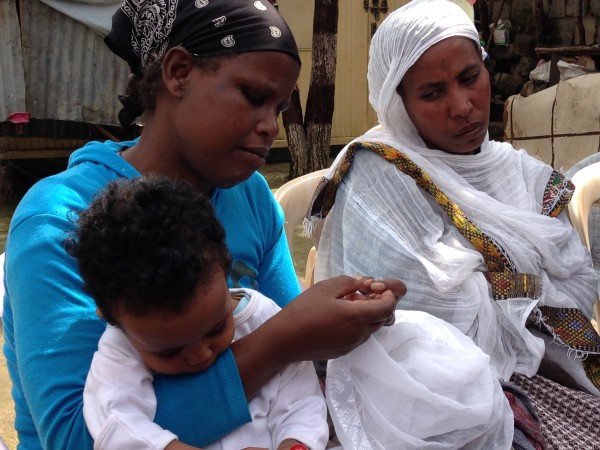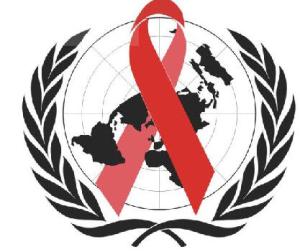
19 Feb Telluride AIDS Benefit: Ethiopian Family Fund & More
The Telluride AIDS Benefit began Friday, February 19, 6-9 p.m. with the Student Fashion Show at Telluride’s Palm Theater. The Sneak Peek Fashion Show follows on Thursday February 25, 8 – 10 p.m. at the Telluride Conference Center in Mountain Village. TAB’s art auction takes place Friday, September 26, noon- 9 p.m., Sheridan Opera House. The Gala Fashion Show is scheduled for Saturday, February 27, 8 – 10 p.m. TAB events end with a sample sale of designer clothes, Monday, February 29, 10 a.m. – 5 p.m., Sheridan Opera House.
For TAB event details, go here.
Can’t attend the fashion show? There is yet another opportunity to watch the action. The Town of Mountain Village airs the gala live – on Mountain Village Cable Channel 15 and online at townofmountainvillage.com/video.
Please scroll down and read about the Ethiopian Family Fund, the featured beneficiary at this year’s fashion show. And listen to my podcast with EFF founder/executive director Marla Hodes.
For further information on TAB’s six other beneficiaries, go here.

Out of sight. Out of mind.
Some minds anyway.
Once the disease du jour, last year HIV/AIDS got bumped from the headlines by measles. This year, it’s the Zika virus. (In recent news, Zika is in the U.S. and can be transmitted sexually).
Once there were red ribbons attached to gowns and tuxes at the Golden Globes and SAG Awards. Not this year. Not for the past few years.
Once trendy, AIDS Rides have been run off the road for years now.
And World AIDS Day tends to pass with a yawn.
Is the age of the once buzzy pandemic known as AIDS finally over?
Not on your life. (Though it may be worth your life to know the facts about the virus.)
All of the above highlights the profound impact media can have on our perception of the pandemic (or any disease for that matter).
In the summer of 1981, The New York Times published what was arguably the first major story about HIV/AIDS. The title: “Rare Cancer Seen in 41 Homosexuals.”
But the “cancer” was not a cancer at all. It was, as we learned, a virus. And in 2015, according to the World Health Organization, there were 37 million people living with HIV/AIDS and close to 78 million people have been infected with the virus since its beginnings. Today, per UNICEF, AIDS is still the leading cause of death for African teens.

In 2009, about 54,000 American were infected with HIV, yet America lacked a comprehensive plan on AIDS until 2010, when President Obama launched the National HIV/AIDS Strategy. The “Strategy” was structured around three core goals: reducing new HIV infections, increasing access to care and improving health outcomes for people living with HIV, and reducing HIV-related disparities and health inequities.
Clearly, the Telluride AIDS Benefit, with its aim of “Fight, Fund, Educate,” has long operated way ahead of the curve and very successfully on behalf of a growing list of beneficiaries – including young people in Africa.
Including those supported by the Ethiopian Family Fund, the featured beneficiary – and one of seven beneficiaries in all which TAB serves from the Western Slope to the Front Range and Africa – at the 23rd annual Telluride AIDS Benefit fashion show.

Ethiopian Family Fund:
Ethiopia is the second poorest nation in the world. However, unlike many African countries, Ethiopians, who divide among Muslim, Jewish and Orthodox Christian, peacefully co-exist. Given the rampant poverty and general lack of education, however, fear and misinformation surround HIV/AIDS, which remains widespread in a country where medications are very limited, though now AIDS patients are able to get meds from the government, a relative new and positive development.
In the West, AIDS may be ubiquitous, but it is also manageable. In the developing world, however, the AIDS crisis remains muzzled and the disease regarded as something mysterious, a stigma or punishment for some unnamed and unnameable wrongdoing. Though campaigns in Africa have been implemented, their effect has been minimal. In Ethiopia, much like in Manzini and the rest of Africa, people are fighting what appears to be a losing battle against the epidemic.
The situation is especially difficult for women and children, who have few places to turn for survival. That is where the Ethiopian Family Fund, founded in 2006, enters the picture.

Our Sisters in Ethiopia program reaches out to HIV positive women and their children, providing a four-month rehabilitation/training program that offers shelter, medical care, and food to the family. A skills training program teaches the women how to manage money and begin a business to become more independent and bring hope to the family. To help facilitate that program, the Ethiopian Family Fund provides capital to help the women get started. Our partners on the ground oversee the women on a daily basis. After graduation, each woman is followed to ensure success. Their businesses start out small, but can grow exponentially when these ladies are given a chance.
“We educate the women about their HIV status, nutritional needs, hygiene, sanitation, and correct medicine management. We also ensure the children are enrolled in school. And because it is optimal to keep these women with their children, EFF makes every effort to keep the mother-child bond strong, while supporting a sustainable path toward independence for the young mothers. And importantly, these women come to understand that they are not ‘bad’ or ‘cursed’ and they are not alone. Beautiful friendships are made and a new life begins. EFF is committed to these women and their children,” explains Marla Hodes, founder and executive director, EFF.

To learn more, click the “play” button and listen to my chat with EFF’s Marla Hodes.


Sorry, the comment form is closed at this time.